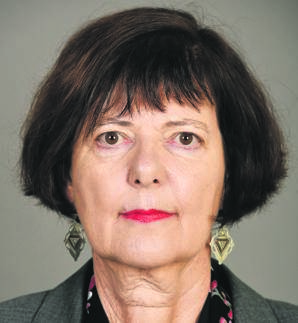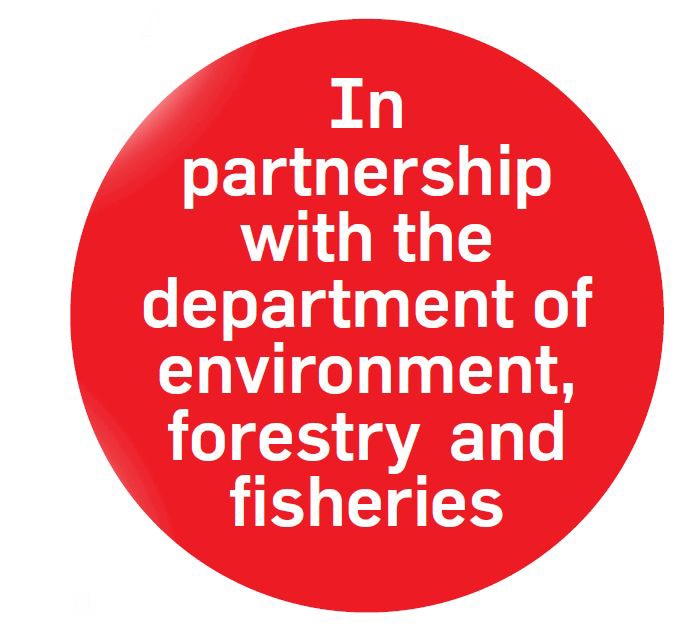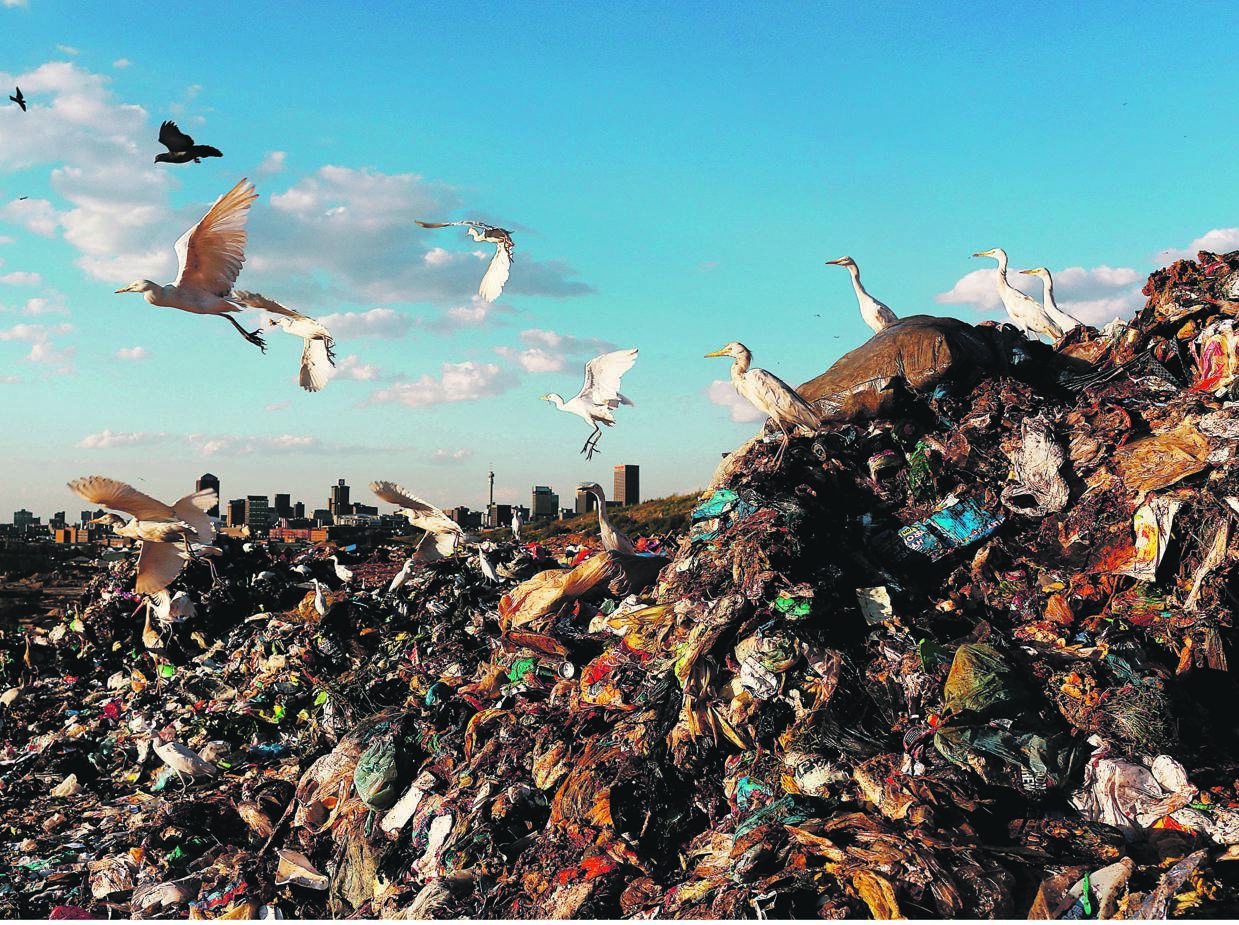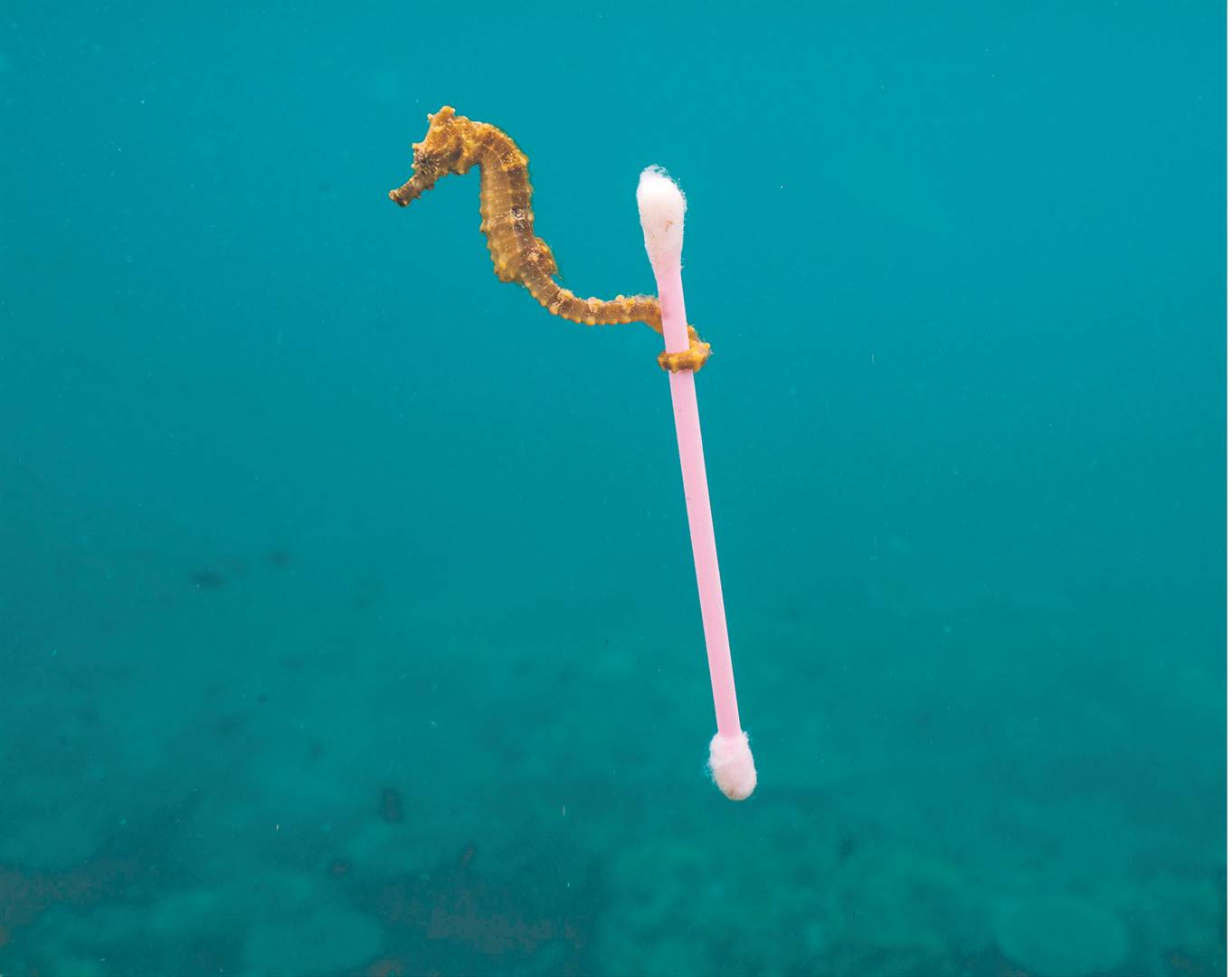
Plastic is a useful and versatile product, but it’s harming the environment so much that we may never recover, writes Liezel de Lange.
“Our ancestors left us Mapungubwe, Great Zimbabwe and the Acropolis. But what are we leaving our children? Plastic straws!”
This is how Environment, Forestry and Fisheries Minister Barbara Creecy summed up the challenge posed by the world’s enormous and tireless consumption of plastic.
“The plastic we are now manufacturing will remain in the environment for thousands of years,” she said.
The department of environment, forestry and fisheries recently held a Plastics Colloquium in Boksburg, where environmental groups and the plastic industry met to determine how the impact of plastic on the environment could be limited.
“Plastic has been with us since the 1950s and, because it is so versatile, it is used throughout modern society,” Creecy said.
“The material is waterproof, durable, versatile and inexpensive.” But it is precisely these characteristics that create so many pollution problems, Creecy warned.
Plastic and plastic products contributed R76 billion to South Africa’s economy in 2016. According to Plastics SA, up to 60 000 people work in the plastics industry.
South Africa’s consumption of raw plastic grew to 1 544 tons last year, of which up to 53% was used in the packaging industry.
“With the growth of plastic consumption, concerns about plastic pollution are also growing,” Creecy said.
A study by the Water Research Commission last year showed that microplastics are being found in our water sources.
The SA Health Products Regulatory Authority is reviewing regulations in the cosmetics industry, which uses plastic granules in products such as face wash, and the department of trade and industry is working with the SA Bureau of Standards to set regulations.
Plastic also impedes growth in our ecosystems because it weakens water absorption and flood resistance in our wetlands.
Experts in plastic waste management kicked off the Plastic Colloquium to discuss the impact of plastic waste on the environment and the challenges in eradicating this waste. Here is their take on what the problem is, what needs to be done and what is being done:
Bala Nengovhela, head of waste management at the SA Local Government Association
“About 64% of household waste is collected by municipalities. There are pockets where separation at source takes place, but there is not enough infrastructure.”
Mark Gordon, deputy director-general of waste management at the department of environment, forestry and fisheries
“Plastic pollution has the attention of the world. We need to facilitate a circular economy, closing the loop through reuse and recycling, and ensuring a restorative and regenerative economy where the value of plastic is not lost by being thrown away. Pressure from consumers makes a big difference. There is currently no legislation banning plastic straws, but many restaurants simply choose not to offer straws any more.”
Professor Cristina Trois, University of KwaZulu-Natal
“Municipalities are the owners of post-consumer waste, but that waste is totally unsorted – 90% of all waste ends up in landfills and we have no idea what the composition of that waste is. Citizens should demand to know if waste is really recycled.”
Dr Morné du Plessis, head of the World Wildlife Fund for Nature in SA
“The plastic problem is far bigger than visible pollution is. Plastic pollution is fundamental to the climate crisis and human health as 20% of all carbon emissions come from plastics. By 2030, the carbon emissions from plastics will be equal to the carbon emissions from 100 Medupi power stations. Government must get much more serious as waste management is not enough. We must fix the accountability across the life cycle of plastics.”
Anton Hanekom, executive director of Plastics SA
“The problem in South Africa is that there is no proper waste management system in place. There is no infrastructure – waste has value, but if we cannot collect it at the source, we cannot recycle. We need to change behaviour so that we collect what we are producing – we need to collect all the waste.”
Luis Avellar, Coca-Cola Africa general manager
“One year ago, Coca-Cola launched the World Without Waste initiative, and our aim is to collect and recycle the equivalent of every bottle and can we sell globally by 2030. We are also looking at better designs for our products. We produce products that contribute to the global packaging problem – it is our responsibility to fix the problem.”
Simon Mbata, chairperson of the SA Waste Pickers Association
“Waste pickers are the backbone of the recycling industry in South Africa, but, if the waste problem is managed properly, we should be the last generation of waste pickers in this country. We are working closely with the department and there is support from industry, but the challenge is to make people understand that waste management is a service, and services must be paid for.”
Creecy praised the private sector for its education initiatives and the development of recycling centres. For example, recycling company Petco already ensures that 63% of PET bottles used by South Africans is recycled every year.
Government has also introduced legislation to reduce the use of plastic bags, and the National Waste Management Strategy of 2009 promotes reuse and recycling of plastic.
“A lot has already been done, but we all agree that we still have much more to do,” said Creecy.
She added that everyone must work together to implement a comprehensive plan so that South Africa can be free of plastic waste by 2030.
This must start in households, where refuse can be sorted and separated into trash and recyclables.
However, Creecy admits that a large number of South African households do not have access to garbage disposal services. For example, people who do not have access to separate garbage disposal avenues should keep recyclable materials such as plastic and paper separate and take them from time to time to places that collect the materials.
The department also wants to help municipalities throughout the country to improve garbage disposal services and develop centres to collect recyclable material. Government wants to start with municipalities along the country’s water sources to prevent mountains of plastic from entering our rivers and, eventually, the sea.
Port St Johns in the Eastern Cape has limited waste disposal resources, but the municipality has developed programmes to separate different types of garbage.
Creecy emphasised the value of the circular economy because “waste can be converted into value”.
“Every ton of waste that ends up on dump sites creates one job opportunity. Every ton of waste recycled creates 18 jobs,” she said.
Meanwhile, single-use plastics, which are a challenge especially in the packaging industry, must be tackled.
“Certain types of plastic must be removed from the value chain,” said the minister.
Creecy called on packaging manufacturers to bear in mind the recyclability of materials.
For example, The Coca-Cola Company in South Africa has just introduced a plastic bottle to the market that consumers can return to the outlet and receive a deposit for. The bottle can be used 14 times.
Creecy said government had set up working groups to investigate standards and regulations for the packaging industry. Among other things, the challenge posed by multilayer packaging (which is very difficult to recycle) must be tackled.
At the Plastic Colloquium, great emphasis was placed on the role that consumers can play in tackling the problem.
1. Separate at source.
This means that you don’t throw all your household rubbish into the bin and then put it outside. These are the items that have value in the recycling industry: paper, glass, plastic, metal, tetra pak (foil-lined containers) and polystyrene. Wash them and put them in a separate, clear bag outside, where waste pickers can remove them and earn a living.
2. Do not litter.
Just because there are waste pickers and municipal workers cleaning up after us does not mean we can just throw things on to the ground. It is harmful to the environment and ugly to look at. It affects our health, blocks our waterways and disturbs vegetation. It can get washed into our rivers, streams and oceans, resulting in water pollution. If you can’t find a bin nearby, keep the rubbish until you get home and then properly recycle it.
3. Use your muscle as a consumer.
Tell shops and fast food outlets that you want sustainable, recycled containers. Use social media to amplify your voice.
4. Always reduce, reuse and recycle – it will save the world.
Dr Morné du Plessis, head of the World Wildlife Fund for Nature (WWF) in South Africa, pointed to the impact that a single phone call had on the fishing industry – a woman called a radio station in Port Elizabeth to complain about a large company in South Africa that was selling a severely endangered fish species.
“Prior to this call, the WWF’s efforts to limit the consumption of certain fish species did not receive much attention from the industry,” said Du Plessis.
According to Du Plessis, the entire value chain began to collaborate after the phone call, and fish resources began to be managed better.
“Consumer pressure certainly helps,” he said.
Mark Gordon, the deputy director-general of waste management at the department of environment, forestry and fisheries, said many South African restaurants no longer provide plastic straws.
“There is still no law banning plastic straws, so this is thanks to consumer pressure,” Gordon said.
Du Plessis said a photo of a seahorse holding an earbud with its tail caught the attention of people all over the world.
“But the issue of plastic pollution is far greater than just what we can see. It’s also about the climate crisis and people’s health,” he said.
According to Creecy, several working groups will now tackle the issues to make sure the plans don’t just stop at “talks”.
The minister will host another Plastics Colloquium next year to monitor the progress.
This project is reported by City Press and paid for by the department of environment, forestry and fisheries
 | ||||||||||||||||||||||||||
Get in touchCity Press | ||||||||||||||||||||||||||
| ||||||||||||||||||||||||||
| Rise above the clutter | Choose your news | City Press in your inbox | ||||||||||||||||||||||||||
| City Press is an agenda-setting South African news brand that publishes across platforms. Its flagship print edition is distributed on a Sunday. |




 Publications
Publications
 Partners
Partners












